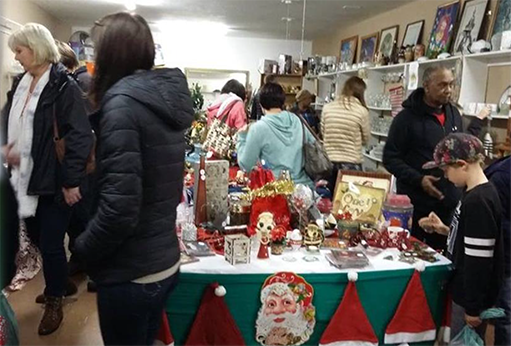NGOs often rely heavily on charitable donations to survive. Many have made great strides is operational sustainability by integrating small business or income generating projects into their organization. But what happens to palliative care organizations that raise funds to support their work by operating small businesses that have been forced to shut down during this pandemic?
The COVID-19 pandemic has altered the lives of the entire human race. We have modified our lifestyles, with government-mandated lockdowns and social distancing becoming the new “norm” as we battle COVID-19. Everyone has a role to play in this fight whether that means staying at home to protect loved ones or putting oneself in harm’s way to battle this virus on the front lines. The services of health and palliative care providers are needed now more than ever.
Businesses all over the world are being forced to adjust during these hard times. A number of organizations have no choice but to shut down some or all of their operations—either due to a lack of demand for their services or because of government lockdowns. While difficult for these organizations, this is a crucial step in slowing the spread of the coronavirus.
But what happens to palliative care organizations that raise funds to support their work by operating small businesses? For many of our partners, a large part of their sustainability is reliant on the revenue generated from their second-hand charity shops. Their mission is to serve those most in need and to show compassion to those who are suffering greatly. In addition to providing financial support, these shops further this mission by serving as a platform that gives back to their communities.
It is a common perception that non-governmental organizations (NGOs) rely in-part or fully on charitable donations and grants. While this form of aid is often the foundation for these organizations, many are constantly devising mechanisms for a self-sustainable future and these charity shops are a step in that direction. In the words of one of our South African partners, “To become self-reliant, in as much of our fundraising as possible, is the ultimate goal of Msunduzi Hospice.”
Unfortunately, with government-mandated lockdowns all over the world, these second-hand shops have all been closed to reduce the transmission of COVID-19. Like so many of our partners, Msunduzi Hospice’s resources are “being stretched to the limit” as a result of these closures. For Khanya Hospice in Durban, South Africa, all three of their charity shops – their only source of monthly income – have shut down since the beginning of the lockdown. Sungardens Hospice in Pretoria relies on their charity shop for 70% of their monthly income.
Perhaps a less determined organization would fold under these circumstances with no reliable source of revenue to afford the supplies, medications, and staffing to carry out their operations. But these palliative care providers have a mission, and like they have done so often in the past—through battling with HIV/AIDs, tuberculosis, and now COVID-19—they will stop at nothing to ensure that no human will suffer alone.
The foundation of Global Partners in Care is the commitment to administering compassionate, affordable care where the need is great and resources are few. In this unprecedented time, we realize that the palliative care organizations themselves have few resources and are in dire need of our help – not only for PPE and other supplies to respond to the pandemic but also to help keep their doors open. Now is the time for the rest of the world to support these organizations so they can continue serving their communities with the same dedication and compassion.

